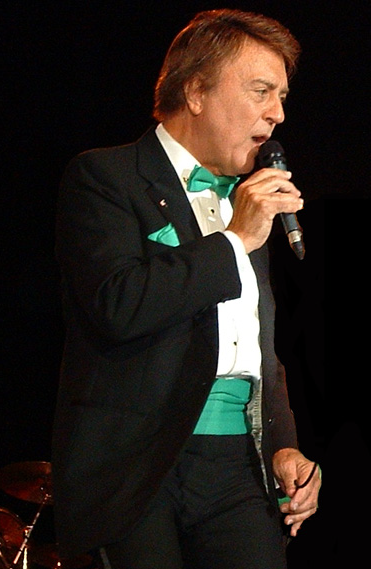.jpg)
-000.jpg)
|
A Conversation |
|
Recently, at the “Ronnie McDowell Elvis Story” show in Ontario, I sat in a restaurant and had a casual conversation for more than an hour and a half with the Jordanaires’ Ray Walker. A couple of months ago we ran the live interview with Ray and Joanna Johnson of ETARadio, which originally aired in 2001, along with a written introduction which gave the details of Ray’s background and his and the Jordanaires’ careers. (link to interview) This time I decided to focus on a few other areas. |
|
One question I asked Ray was how he had managed after all his years in the entertainment business to remain “sane and normal” when - as we know - an entertainer’s life can often wreak havoc with marriages and families and many entertainers find themselves struggling with problems or difficult people that tend to beat them down. It’s not easy being an entertainer, being on the road, or being a “star.” |
-001.jpg)
|
Ray explained that he and the Jordanaires, as a group, have always tried to put their family life first. He said they had probably turned down more jobs (and money) than they had accepted over the years, in order not to disrupt their family life. One example he gave was turning down a lucrative offer to move to California which would not have been in the best interests of his family. He also said that the Jordanaires have never wanted or tried to be “stars.” Each of them is successful in his own right apart from being a Jordanaire and they work well together “as family”...leaving any minor problems far from the stage when they are performing. Ray also emphasized that each of them has more interests, priorities and roles in life than solely being an entertainer and that has helped to keep them solidly grounded. In Ray’s case, he spoke proudly of his own six children and the more than 35 foster children he has worked with, in addition to his other interests. |
|
I also commented on the incredibly good version of Always on My Mind that the Jordanaires had sung Friday night at the show. As I told Ray, I have never really cared for this song (with all due respect to Willie and Elvis), but listening to the Jordanaires sing it, I wondered how they managed to convey the very essence of the song in a way I have never heard before. In answering this question, Ray mentioned he had advised another singer one time, after hearing a “lackluster” version of a particular song, to use visual imagery when singing the words to a song, to think about the situation around which the song was written, and get to the heart of the song, so that it didn’t sound sterile...good advice for all singers! |
|
During the conversation, I mentioned that Scotty Moore is on record as being very much against not-so-good alternate takes of Elvis’ records being released. Ray emphasized that he felt exactly the same way...and stated that he has already voiced his opinions to the record companies in question. His words were: “Elvis would be absolutely heartbroken after what he went through (to get the take he wanted).” As we know, Elvis would often spend hours going through many, many takes to get the sound and the song the way he wanted it....sometimes, even when he was alive, he would listen to the version that had been released and he’d know that it had been slightly changed and wasn’t at all happy about it. I believe he would be heartbroken. |
|
Another memorable song that the Jordanaires sang in Orillia was a stirring version of “God Bless the USA” which had been adapted for a Canadian audience. This song was a showstopper both nights. Here, Ray’s command of an audience was used to perfection. He spoke eloquently of September 11 (911) and the number of countries that had been affected by this act of terrorism, the infinitesimal border between Canada and the USA, how we are all “Americans” in terms of living in “North America” whether we be citizens of Canada or citizens of the USA. Canadian towns and cities were mentioned (e.g. Orillia, St. John’s, North Bay) and the song ended with “God Bless the USA and Canada.”...both nights the audience started cheering part way through the song and by the end of the song they were on their feet giving the Jordanaires a standing ovation. Ray told me he had been told this song wouldn’t work in Canada, or perhaps shouldn’t be sung, but he’d overridden “their” objections and said that if Canadians had wanted to see a solely Canadian show they wouldn’t have bought tickets to see American performers ...that the song and the preface to it speak to the common bond that we have as North Americans and appeals to the “humanity” in each person. Well, he was obviously right - it was a showstopper and beautifully done! |


